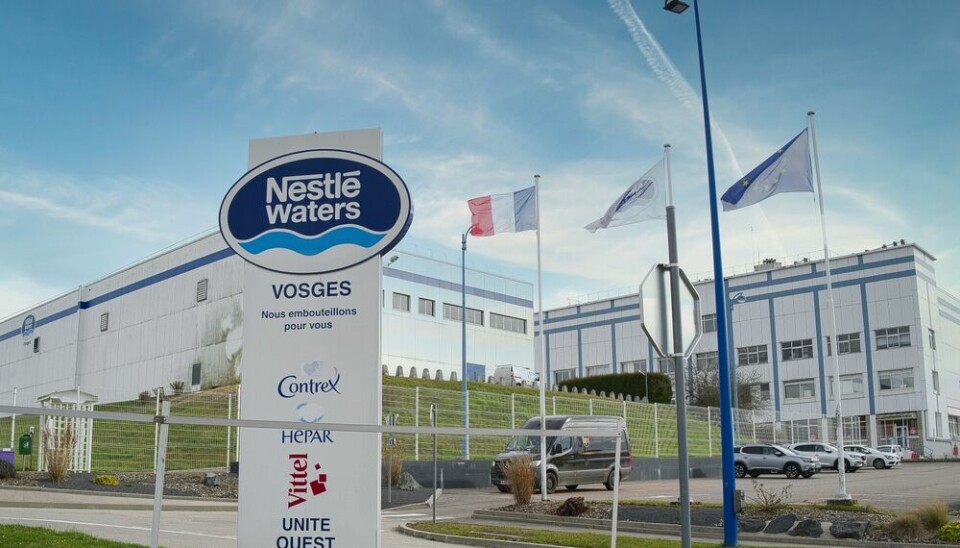Four French water brands accused of bacteria and chemical contaminants
Nestlé Waters, which has bottling plants in east and south-west France, has been hit again by questions over the quality of its mineral waters
The Nestlé Waters brands concerned by the new allegations are Perrier, Vittel, Hépar, and Contrex, the same brands for which the company admitted to illegal purification methods
Wirestock Creators/Shutterstock
Four brands of bottled water from the Nestlé Waters group in France do not conform to health quality regulations, a new report from food and health agency Anses has shown.
An inquiry from FranceInfo and newspaper Le Monde looked into a confidential Anses report, alongside a similar review of the report by the regional health agencies (Agences Régionales de Santé, ARS) of Grand Est and Occitanie (regions in which Nestlé Waters has bottling plants).
The group found that the water contamination is widespread, and includes the presence of bacteria as well as ‘forever chemical’ pollutants above permitted levels.
Brands affected
Four brands are affected: Perrier, Vittel, Hépar, and Contrex. The production site of Vittel, Hépar, and Contrex is in Vosges; while the Perrier site is in Gard.
Nestlé also produces water under the brands San Pellegrino and Nestlé Pure Life, but Anses did not respond to requests from BFMTV’s RMC Conso on whether these brands are affected.
Read more: Perrier, Vittel: French brands ‘illegally filtered contaminated water’
‘Regular contamination’ of boreholes
The latest case dates back to June 2023, when head of the ARS Occitanie, Didier Jaffre, called on Anses to investigate water produced by Nestlé in the region, under the brand Perrier.
Mr Jaffre wrote a letter reporting on the alleged "presence of prohibited treatments" at the plant, "regular contamination of the raw water from at least five of the seven boreholes", and "the presence of micropollutants".
The Nancy hydrology laboratory then carried out checks on Anses’ behalf.
But the ARS later claimed that the report submitted by Anses to the Ministry of Health in October was "incomplete and fragmentary", and that it was not able to “guarantee the sanitary quality of finished products” (bottled waters by Nestlé).
It said that Anses had discovered "various regular microbiological contaminants", including traces of coliform bacteria, Escherichia coli (E. coli) and enterococci.
The report also found evidence of ‘forever chemicals (per- and polyfluoroalkyls, PFAS)’ and pesticide traces at levels above permitted thresholds.
“The pesticide amounts vary, but sometimes exceed 0.1 micrograms per litre for some boreholes," Le Monde newspaper highlighted from the report.
Nestlé has now been advised to implement a stronger monitoring plan in all of its factories, and change spring sources in the case of contaminated boreholes.
Illegal mineral water treatments
It comes just over a month after the French food safety NGO Foodwatch launched a legal case to the Paris judicial court against Nestlé after the food giant admitted to having illegally treated mineral water sold under the same four brands: Perrier, Vittel, Hépar, and Contrex.
Read more: Watchdog takes action over banned treatment of French mineral water
At the end of January, Nestlé Waters admitted that it had used banned water filtration methods, including ultraviolet cleaning and activated charcoal treatments.
Foodwatch accused the company of nine breaches of the European directive on mineral water, as well as breaches to the French public health and consumption codes le Code de la consommation and le Code de la santé publique.
The Sources Alma group was also accused of these practices.
These treatments present no risk to health, and are often used on tap water, but the European Union bans their use on water that is sold as ‘natural mineral water’.
These claims began to emerge in 2020, when an anonymous worker at the Alma factory alleged the practices in a report submitted to the fraud and consumer office la Direction générale de la concurrence, de la consommation et de la répression des fraudes (DGCCRF).
Water rules in France
Public health code le Code de la santé publique mentions three types of bottled water:
Natural mineral water, distinguished by its 'original purity' (such as Perrier, Vittel, Evian)
Spring water (such as Cristaline)
Water ‘made drinkable by treatment’
Natural mineral waters and spring waters are supposed to be protected from the risks of contamination and pollution because they are drawn from deep underground aquifers.
This means that legally, they can only be purified by a limited number of treatments, and the use of carbon filters or UV filters is banned. The filter threshold must not be less than 0.8 microns, and filtration must only be used on an ad-hoc basis to filter out minerals such as iron or manganese.
Natural mineral water is intended to be pure already so it should not require purification.
These strict rules are among the reasons that people in France often have such faith in natural mineral water, which is 100 times more expensive than tap water, but is supposed to be ‘purer’, ‘healthier’ and ‘better for you’.

























